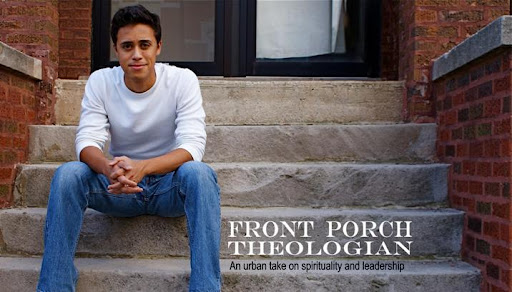The thing about the free will debate (and often theology in general) is that it becomes so otherworldly and lofty that we often overlook the relevancy of the debate at the floor level. The debate rages at the heights of soteriology (views on salvation) and other metaphysical realities. But I don’t often see people discuss the implications of free choice with everyday things in life, especially discussions that didn’t bring it back to salvation or metaphysics somehow.
Now, I’m not writing to split hairs about whether Calvinists or Arminians, or compatibilists or incompatibilists have it right. More than likely, since we’re humans, they both have it right and wrong. This is also not to make light of this classic debate. And granted, what transpires below may also be very sloppy theology! But I just want to view the debate from a more practical lens and bring it down from the rafters, just for a moment.
I want to discuss the importance of choice among those who routinely are not able to choose, or who are prevented from choosing. Many people who live in impoverished areas are constantly chosen for: someone else chooses where they will live, what kind of food they will eat, when they will get up and when they will sleep, where they will work, when they can shop, where they will attend school. This kind of lack of freedom is an overall lack of an ability to participate in the exchange of life. How does that affect people? And is that what God wanted for us?
I’ll give you a specific example. Have you ever volunteered at a food pantry? Many traditional pantries are set up like this: food is donated, volunteers gather together to sort and bag the food, and then the volunteers hand those bags to the pantry clients. “God bless yous” and “Thank Yous” are exchanged. But many people fail to realize what happens later. A lot of those clients end up dumping half the bag of food because it’s not food they would ever choose to eat.
Does that seem a little ridiculous or unappreciative to you?
Well, when you go to the grocery store, what would you do if a clerk greeted you at the door, and began filling your cart before you had a chance to say hello? Now, would you want that for yourself?
So there’s a movement happening among food pantries that I’m glad Breakthrough is a part of. It’s the “client-choice” food pantry model. Basically, a client-choice pantry is set up more like a grocery store. It may look differently at each pantry, but the bottom line is that people get to pick what they want to eat. It’s not really that genius. It should be a no-brainer. And the more I think of it, I’m dumbfounded that it has taken so long for well-meaning food pantries to pick up on it. Duh, people should be able to choose what kind of food they want to eat!
We don’t go far as to place any forbidden or poisonous fruit in our Fresh Market food pantry that people are warned to avoid…or else! But at a client-choice food pantry, “choosing” allows people to be human at a most basic level. (And I’ll smack you if ask me whether God determined or knew that they would choose oatmeal over tomato sauce). This goes a long way with a person’s overall quality of life. Yet, those of us with resources and “power” take for granted how important our choices are with everyday things.
No, there is no such thing as absolute freedom. That is unfathomable. God also establishes many paths for us according to his will. But to be an everyday human, we do have choices within our given environment. And I find that the more determined a person’s life is with the everyday choices of eating and sleeping and working, then the more despairing they tend to be.
Now you can draw your own metaphysical conclusions from this example and bring it back up to the salvation rafters and all if you want. But there is a simpler experience of free choice that calls us to consider whether or not we are living as humans right now. At the floor level, freedom is a symbol of human dignity. And I think that’s why God gave us at least a little bit of freedom. It makes such a big deal with the smallest things in life.
Honestly, who knows the mind of the Lord and what all that freedom talk means when the final bell rings. Yes, it’s important and fun (for some) to debate about it. But do we debate enough about what might happen at an everyday level if more choice was infused into the lives of those from whom it has been absent for so long?
Since one of the major themes of Deuteronomy related to righteousness and justice is how people choose to live, let’s think about what is preventing so many disenfranchised people from being able to do so. We must not think of freedom as simply a matter of metaphysics or salvation, because we have a lot of other smaller and more critical life choices to make in our ministries and lifestyles before we have any business talking about how or whether we’re saved. Because if we choose to overlook how our choices affect the choices of others, we may find ourselves hanging with the goats.


